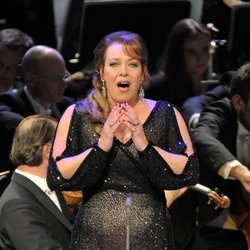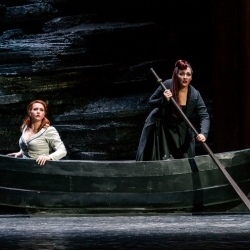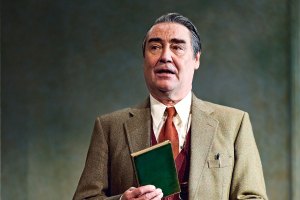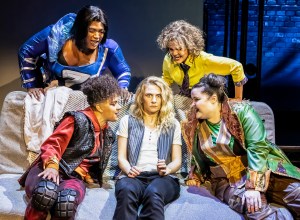Elektra (Royal Albert Hall)
Supreme Straussians Christine Goerke and Semyon Bychkov bring the composer’s fieriest opera to the BBC Proms

© Christian Steiner
Elektra is the one about three siblings, distraught because their father, Agamemnon, has been murdered by their adulterous mother (Klytämnestra) and her usurping lover. One child counsels caution, a second takes revenge into his own hands and the third, Elektra, goes not-so-quietly round the bend.
Actually they’re all barking in librettist Hugo von Hoffmannsthal’s adaptation of Sophocles’s play, and Strauss’s rank, relentless music leaves us in no doubt about it.
The score, in Justin Way‘s intelligent and undistracting semi-staging, came across with a fetid immediacy. Right from the orchestra’s famous opening shriek it was clear that the sprawling contingent of BBC Symphony players was likely to dominate the drama – and so they did.
Strauss’s orchestration forensically depicts the warp and weft (mostly the former) of Elektra’s fraying mind. The music, which unravels without repose, has such savage urgency that even lyrical moments are not to be trusted: they always mask a deeper torment. When Elektra finally recognises her returning brother, her exultant major-key cry of ‘Orest!’ immediately shatters into a thousand orchestral shards like the rupture of an emotional aneurysm.
'Goerke piled rage upon malevolence until all her character could do was implode'
If proof were needed after his magisterial Die Frau ohne Schatten for the Royal Opera, Semyon Bychkov showed again that he is an immensely distinguished Strauss conductor. His deployment of the vast forces involved in this densest of scores was as perceptive as it was precise.
The Klytämnestra on Bychkov’s 2004 recording of the opera rejoined him here, and did so in triumph. Felicity Palmer , who wears her years improbably lightly, drew on decades of experience to give a terrifyingly acute and thought-through account of Strauss’s screaming queen, as thrilling to see as she was to hear.
Thank goodness Christine Goerke had at least one colleague who could match her all-encompassing incarnation of the title role. The American dramatic soprano was returning to the opera she sang so brilliantly at the Royal Opera less than a year ago, and her sense of psychological engagement was every bit as intense as it was then. If anything she was in even better voice, not tiring in the latter stages as she had done at Covent Garden but piling rage upon malevolence until all her character could do was implode.
Yet even under pressure Goerke’s voice retained its voluptuous warmth: she is blest with the ability to deploy vocal muscle rather than (as with some Elektras) steel-edged projection to power across the huge onstage orchestra.
These two immense performances were complemented well by Johan Reuter as Orest, and by Robert Künzli and Jongmin Park in their brief appearances, but the five Maids lacked definition and power – possibly because they were communing with each other rather than with the gallery – while Gun-Brit Barkmin, though clear-toned with the requisite vocal strength, was a slightly pallid Chrysothemis in her lengthy exchanges with her troubled sister.
















